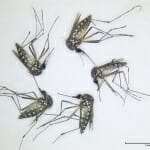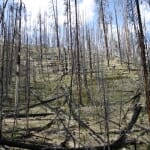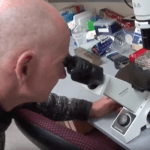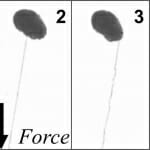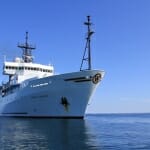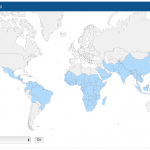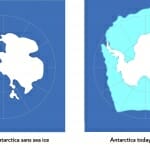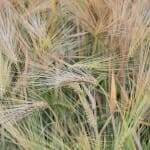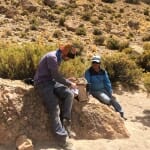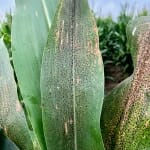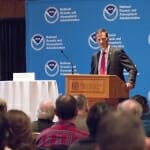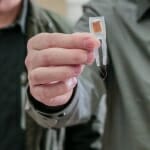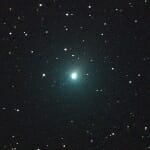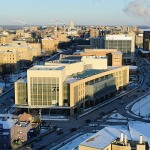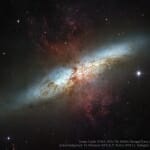Category Science & Technology
A new kind of mosquito repellent that comes from bacteria
University of Wisconsin–Madison researchers describe the first mosquito-repelling compounds to be derived from bacteria, and they appear to work at lower doses than repellents currently on the market. Read More
Stem cells: How we got here, where we’re going
This is the first in a series of four videos about stem cell research at UW–Madison: how it started, what it's achieved, and where it's headed. Catch up on what's happened since James Thomson's prescient prediction that stem cells "will change medicine, period." Read More
Unraveling threads of bizarre hagfish’s explosive slime
Jean-Luc Thiffeault, a University of Wisconsin–Madison math professor, and collaborators Randy Ewoldt and Gaurav Chaudhary of the University of Illinois have modeled the hagfish’s gag-inducing defense mechanism mathematically. Read More
Study: “Post-normal” science requires unorthodox communication strategies
Proposals to fight malaria by “driving” genes that slow its spread through mosquitoes is a high-risk, high-reward technology that presents a challenge to science journalists, according to a new report. Read More
Gene-editing tool now being used to develop better antibiotics
Jason Peters and colleagues have repurposed the gene-editing tool CRISPR to study which genes are targeted by particular antibiotics, providing clues on how to improve existing antibiotics or develop new ones. Read More
Flashing lights protect livestock in Chile — by deterring pumas
New UW–Madison research shows how bright, flashing lights can prevent puma attacks on livestock in Chile, without harming the predators. Read More
Phone to farmer: Fungus on the way, time to spray
The apps and models compare current weather to historic data about conditions that are conducive to a particular plant disease, then calculate whether it makes sense to spray fungicide – or not spray and reduce pesticide use. Read More
“Smart City” awards recognize 14 UW–Madison students in first stage
The competition encourages the sharing of fresh ideas and unconventional thinking for the benefit of Wisconsin. Read More
Mercury levels in fish fluctuate along with water levels in lakes
A new study has found that when droughts cause water levels to drop, the levels of mercury found in fish also plummet. In wetter weather, water levels rise and levels of mercury in fish increase. Read More
Black youths less protected from antisocial behaviors than white peers
New research assesses the developmental trajectories of antisocial behaviors in both black and white youths. Read More
Watch comet 46P/Wirtanen, discovered by a Wisconsinite, as it nears Earth
The comet, discovered by Kenosha native Carl Wirtanen, a well-regarded hunter of astronomical objects and surveyor of the Milky Way in the 20th century, will make its closest approach to Earth on Dec. 16. Read More

